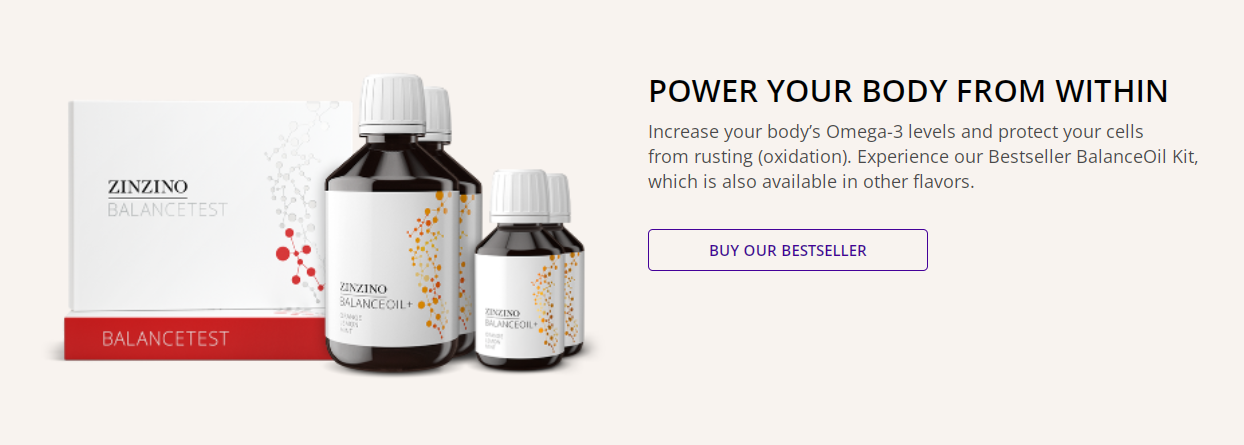Start your health journey today. Better health starts with better balance – specifically, in our cells, gut and immune system. Starting with a unique test, the 3-step Zinzino Health Protocol gently balances, restores and boosts the body, increasing your chances of living a healthier, happier life.
Our test-based, high-quality products create positive disruption in the health and wellness industry. Since 2005, we have been one of Europe’s fastest-growing direct sales companies – are you ready to join us and inspire change in life?
What are the essential nutrients?
A balanced diet is a life in balance. It’s a healthy spread of fruits, vegetables, wholegrains, and healthy protein. Aim for color and variety, use premium oils, and avoid sugary drinks and condiments. Make vegetables the hero of your plate. A well-rounded dinner is as simple as leafy greens and avocado, topped with olive oil (filling up your plate) with salmon on a bed of rice (on the other half).
The nutrients you should aim for in your food choices include the three pillars – protein, carbohydrates, and fats – plus the essential vitamins and minerals:
Vitamins A, C, D, E, K
B Vitamins: B1 (thiamine), B2 (riboflavin), B3 (niacin), B5 (pantothenic acid), B6, B7 (biotin), B12, and folate
Calcium
Phosphorus
Potassium
Magnesium
Iron
Zinc
Iodine
Copper
Manganese
Selenium.
Why are nutrients important?
Collectively, nutrients in our foods help meet the body’s needs. They are vital to support your overall health, energy, and regeneration. A host of issues can occur if the body is out of balance, which is why keeping in tune with your specific nutrient needs is the key.
Essential nutrients are appropriately named because the body can’t generate its own vitamins and minerals. It must be sourced through diet. Fatty acids are one example. They are vital sources of energy and building blocks of fat in our cells that keep our body, brain1 and heart2 healthy and functioning. Of all the different types of fatty acids, only two have been declared essential to human health: Omega-6 and Omega-3. We can’t create these fatty acids on our own, which is why they are such an important part of our diet.
Fatty acids fuel and build our bodies
When we digest our food, fatty acids are absorbed into the blood and our cell membranes. Omega-3 and Omega-6 fill multiple biological functions in our body, keeping our cells fluid and flexible. Omega-6 is mostly found in meat, poultry, eggs and most vegetable oils. Omega-3 is also a natural antioxidant and most easily found in oily fish, green, leafy vegetables and plant oils.
Our modern diet contains too much Omega-6’s and not enough Omega-3’s. Finding a way to rebalance these two essential fatty acids in the food we eat is key to keep our health in check. Complementing your diet with Omega food supplements might help you strike an adequate ratio between these essential fatty acids and move towards a healthier, more balanced life.
Types of nutrients (micro and macro)
These essential fuel sources belong in one of two categories: micro and macronutrients. Macronutrients, as previously mentioned, are the pillars, the building blocks of your diet – protein, carbohydrates, and fats.
These macronutrients will govern most of your meals. Micronutrients are all the vitamins and minerals, as listed above. Both groups of nutrients are important and cannot be neglected.
Essential nutrients you find in food
Understanding your own, specific dietary needs will help govern food choices. This is where personalized nutrition comes into play, as every body is different. Take a scientific and confidential, at-home dried blood spot test such as the BalanceTest to find out the current status of your body and what supplements you might need.
For your macronutrients, the best sources of protein are meat, dairy, legumes, nuts, seafood, and eggs. For carbohydrates, opt for pasta, rice, cereals, breads, potatoes, milk, and fruit. Fats are obtained through oils, butter, avocado, nuts, seeds, olives, meat, and seafood.
Great sources of vitamins include fruits and vegetables, grains and cereals, full-fat dairy, egg yolks, and seafood. Getting your blood tested to understand your specific essential nutrient levels can help inform which foods to eat more (or less) of.
Most common nutrient deficiencies
In today’s fast-paced society, nutrient deficiencies can go unnoticed. But your body has a way of whispering if something’s wrong. Build a relationship with it and learn what it’s trying to ‘tell’ you. A nutrient deficiency is fixable, especially in the age we’re in of taking ownership of our health. The western diet is conducive to a micronutrient deficiency. The most common nutrients that are lacking in our food include: iron, iodine, Vitamin D, Vitamin B12, calcium, Vitamin A, Vitamin C, magnesium, folic acid, and essential fatty acids.
Try Zinzino today! https://zigi.link/zinzino




